Annual alumni golf events represent one of the most popular and effective traditions for maintaining connections with graduates, raising funds for institutional priorities, and celebrating the shared bonds that unite alumni communities across generations. From intimate gatherings of a dozen foursomes to elaborate tournaments attracting hundreds of participants, these cherished events create opportunities for networking, reminiscing, and supporting alma maters through friendly competition on the links.
Yet many schools and universities struggle to manage the multifaceted demands these events create. Historical information about past tournaments gets lost as staff turn over, event details scatter across email threads and spreadsheets, sponsor recognition receives inadequate visibility, and the stories and memories from decades of golf outings fail to receive appropriate preservation. Meanwhile, planning committees reinvent processes annually rather than building on institutional knowledge, and promotional efforts lack the compelling historical context that could attract broader participation.
This comprehensive guide explores strategies for planning exceptional annual alumni golf events while leveraging modern recognition platforms to preserve tournament history, manage event information effectively, and create lasting engagement that extends far beyond a single day on the course.
Annual alumni golf events deliver maximum value when planning combines meticulous attention to logistics with systems that preserve institutional memory and facilitate year-over-year improvement. Schools that excel at golf tournament management create experiences that honor tradition while embracing innovation, celebrate past participants while welcoming new golfers, and generate both immediate engagement and lasting connections.
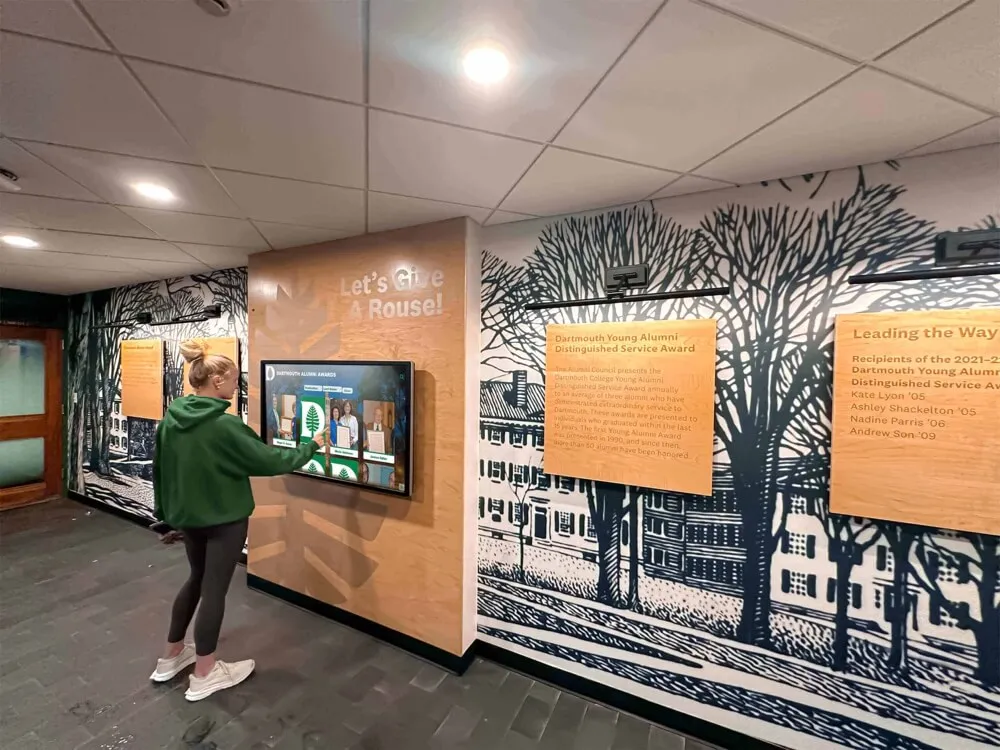
Modern recognition platforms enable alumni to explore institutional history including past golf tournament highlights and participant recognition
The Strategic Value of Annual Alumni Golf Events
Understanding what makes golf tournaments particularly effective alumni engagement vehicles helps schools maximize both immediate outcomes and long-term relationship building.
Why Golf Events Work for Alumni Engagement
Golf tournaments offer unique advantages that few other alumni events can match:
Natural Networking Environment
- Four-hour playing time creates extended conversation opportunities impossible at brief receptions
- Small group format (foursomes) facilitates authentic connection and relationship building
- Shared activity reduces social pressure compared to pure networking events
- Multiple interaction points throughout the day beyond just playing golf
- Relaxed atmosphere conducive to genuine relationship development
Broad Appeal Across Demographics
- Accessible to alumni at various skill levels through handicap systems and scramble formats
- Attracts participants across wide age ranges from recent graduates to senior alumni
- Provides family-friendly options when formatted to include spouses and guests
- Appeals to both highly engaged alumni and those seeking reentry points after years away
- Creates natural annual tradition that alumni plan into calendars year after year
Fundraising Effectiveness
- Multiple revenue streams including player fees, sponsorships, auction items, and additional donations
- Corporate sponsorship opportunities providing visibility to local and regional businesses
- Relatively high ticket prices compared to other alumni events justified by full-day experience
- Built-in fundraising activities including raffles, contests, and silent auctions
- Opportunities for major gift conversations in relaxed, unhurried setting
According to research on effective alumni engagement strategies, athletic and recreational events consistently generate higher participation rates than purely social gatherings, particularly among alumni who may feel less connected to academic aspects of their institutional experience.
Building Traditions Through Annual Consistency
The “annual” aspect of golf events creates particular value that one-time gatherings cannot replicate:
Tradition and Anticipation
- Regular scheduling builds expectations and calendar blocking years in advance
- Alumni come to view attendance as tradition they prioritize annually
- Generational participation emerges as parents bring children who eventually bring their own families
- Historical continuity creates stories and memories that span decades
- Consistent timing and location reduce planning burden for repeat participants
Cumulative Community Building
- Same foursomes reuniting annually strengthens bonds over time
- New connections from one year’s random pairings become intentional reunions in subsequent years
- Tournament stories accumulate creating shared institutional folklore
- Long-term participants become ambassadors recruiting new attendees
- Historical recognition of past participants reinforces tradition’s significance
Multiple Stakeholder Benefits
Well-executed golf events serve diverse institutional constituencies simultaneously:
For Alumni
- Enjoyable recreational experience combining athletics with socialization
- Reconnection with classmates and teammates after years or decades apart
- Meaningful way to support alma mater through participation and contribution
- Networking opportunities with fellow graduates across industries and generations
- Access to campus facilities and updates on institutional developments
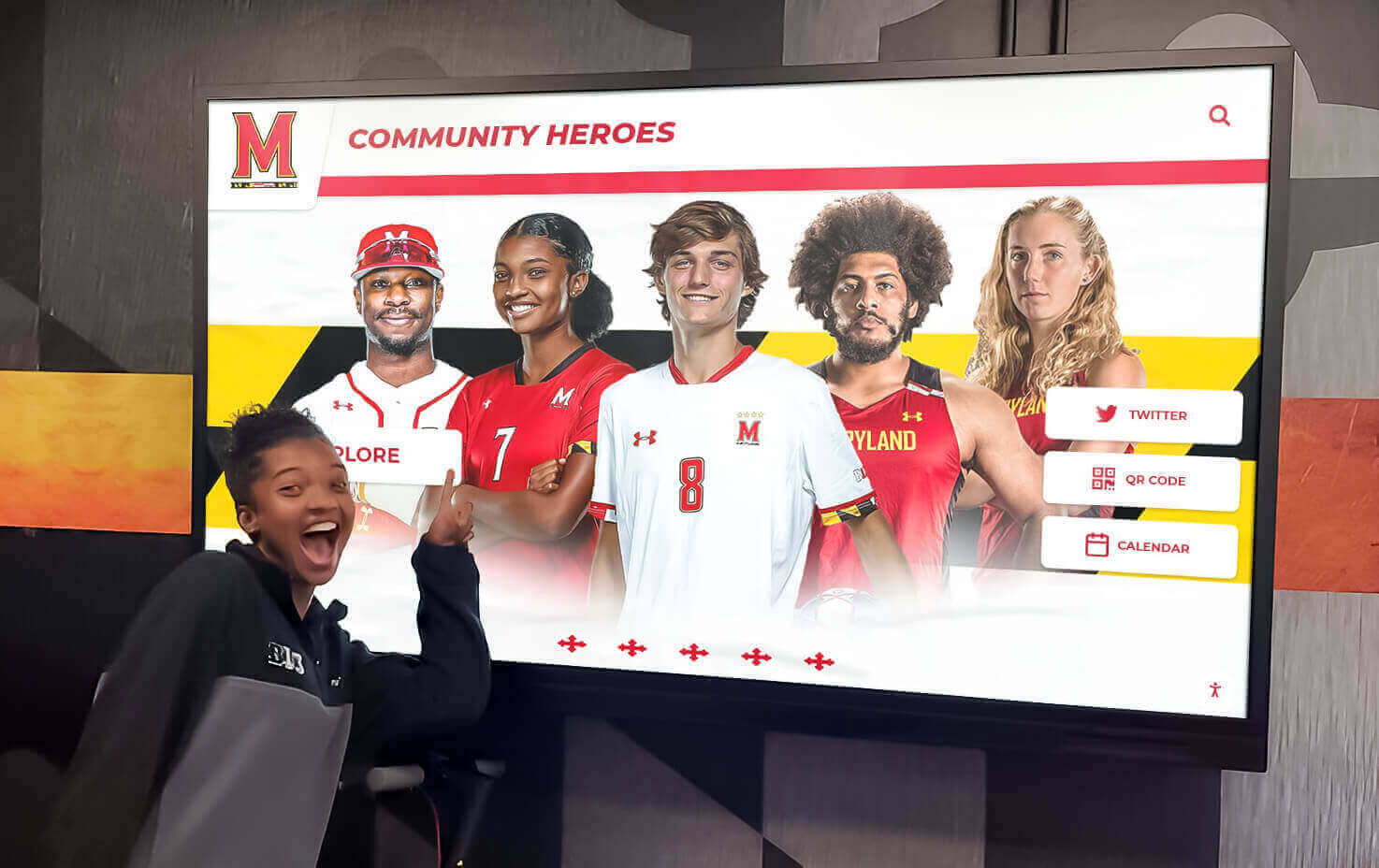
Recognition displays celebrating past tournament participants and distinguished alumni create compelling context for annual events
For Institutions
- Significant fundraising revenue supporting scholarships, programs, or facilities
- Strengthened alumni relationships leading to increased lifetime engagement
- Positive visibility in local and regional business communities through sponsorships
- Opportunities to showcase campus improvements and institutional achievements
- Data collection and relationship building supporting broader advancement goals
For Current Students
- Scholarship funding and program support generated through tournament proceeds
- Networking opportunities when students participate as volunteers or players
- Exposure to successful alumni demonstrating career possibilities
- Enhanced facilities and programs funded through tournament revenue
- Connection to institutional traditions creating sense of belonging and continuity
Planning Exceptional Alumni Golf Tournaments
Strategic planning addressing all aspects of tournament execution ensures smooth operations while building frameworks for continuous improvement across multiple years.
Essential Planning Timeline
Successful golf tournaments require systematic planning beginning months before event day:
6-8 Months Before Tournament
- Form planning committee with alumni volunteers and institutional representatives
- Select tournament date coordinating with course availability and institutional calendar
- Secure golf course or club through formal contract or agreement
- Establish budget projecting all revenue sources and expense categories
- Determine overall format (scramble, best ball, individual stroke play)
- Begin developing sponsorship packages and identifying potential corporate partners
3-5 Months Before Tournament
- Launch registration process through online platform or manual system
- Begin active sponsorship recruitment with committee members making personal asks
- Secure tournament insurance and necessary liability coverage
- Develop promotional materials including save-the-date announcements and detailed invitations
- Recruit volunteers for day-of-event roles and responsibilities
- Begin procuring prizes, awards, and auction items for additional fundraising
1-2 Months Before Tournament
- Intensify marketing through multiple channels reaching all alumni
- Confirm all vendor contracts for food, beverages, equipment, and services
- Finalize sponsorship agreements and recognition implementation
- Develop detailed run-of-show timeline coordinating all event elements
- Print programs, signage, and materials needed for smooth operations
- Coordinate hole sponsor signs and placement at course locations
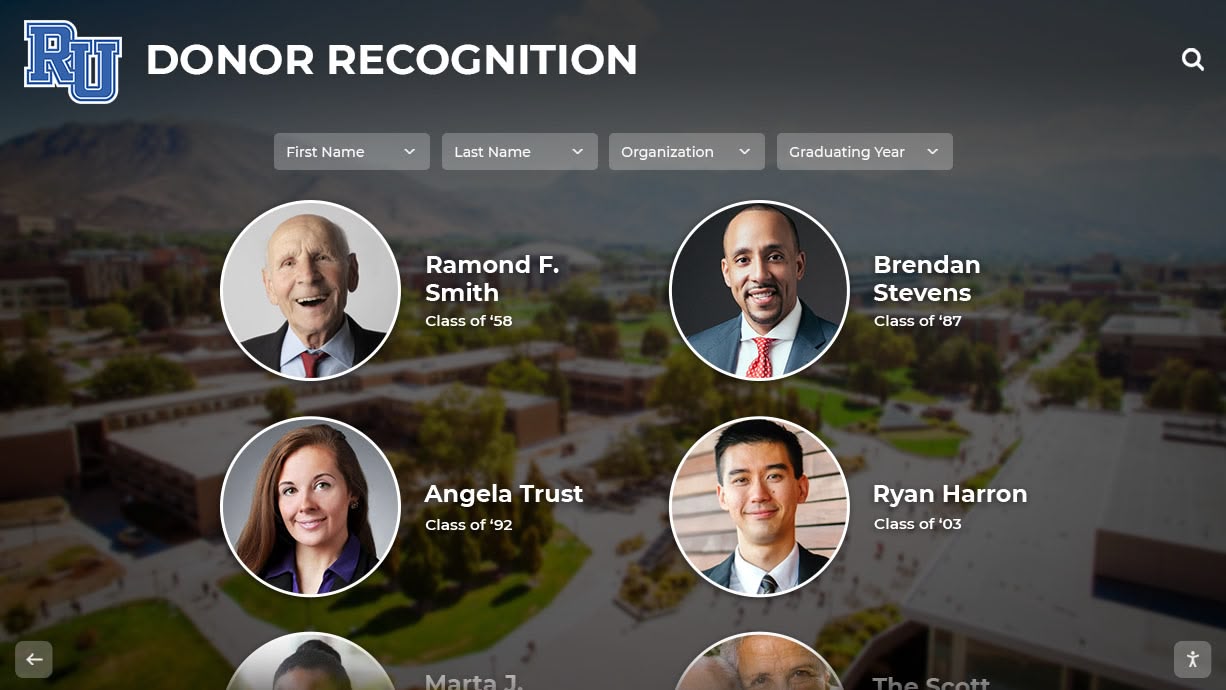
Donor recognition systems honor past tournament sponsors and participants creating appreciation and encouraging continued support
2-4 Weeks Before Tournament
- Send detailed participant communications with logistics, directions, and schedule
- Confirm final participant count with golf course for catering and cart assignments
- Finalize foursomes and tee time assignments balancing skill levels when possible
- Prepare volunteer training materials and day-of-event instructions
- Confirm all audio-visual needs for announcements and awards presentations
- Develop contingency plans for weather and other potential disruptions
Week of Tournament
- Conduct final participant communications with any last-minute updates
- Prepare registration materials, name tags, and participant gift bags
- Coordinate final sponsorship recognition placement and visibility
- Brief all volunteers on roles, timing, and troubleshooting procedures
- Confirm all vendor arrivals, setup times, and service schedules
- Pack all materials, supplies, and backup items needed for smooth execution
Tournament Format Selection
Choosing the right competitive format significantly impacts participation enjoyment and accessibility:
Scramble Format (Most Popular for Alumni Events)
- Each player hits, team selects best shot, all play from that location
- Highly social and enjoyable for players of all skill levels
- Keeps all participants engaged throughout entire round
- Reduces frustration for less experienced golfers
- Typical scoring: Team records one score per hole using best shots
Best Ball Format
- Each player completes hole individually, team records lowest score
- Balances individual accomplishment with team competition
- Works well when foursomes include significant skill variation
- Maintains individual accountability while providing team support
- Allows competitive golfers to shine while protecting weaker players
Individual Stroke Play
- Traditional format where each player records personal score
- Appeals to serious golfers preferring individual competition
- Requires accurate handicap system for fair competition
- May intimidate or exclude less experienced players
- Best suited for smaller events with predominantly skilled participants
Most alumni golf tournaments utilize scramble format due to superior accessibility, social dynamics, and broad appeal across skill levels. According to golf event planning research, scrambles generate 30-40% higher participation rates compared to individual formats at alumni events where inclusion matters more than competitive purity.
Comprehensive Budgeting and Financial Planning
Realistic budgets ensure tournaments achieve fundraising goals while maintaining quality participant experiences:
Revenue Sources to Maximize
- Player Registration Fees: Typical range $150-250 per player including golf, cart, meals, and contests
- Corporate Sponsorships: Tiered packages from $500-5,000+ providing visibility and recognition
- Hole Sponsorships: Individual hole recognition at $100-500 per hole depending on market
- Contest Sponsorships: Longest drive, closest to pin, hole-in-one sponsors at $250-1,000 each
- Silent Auction and Raffles: Additional fundraising through donated items and experiences
- Mulligans and Game Enhancements: Selling mulligans ($20-50) and other shot-saving options
Major Expense Categories
- Golf Course Fees: Greens fees and cart rentals representing 30-40% of typical budgets
- Food and Beverage: Breakfast, on-course refreshments, and post-round dinner/reception
- Prizes and Awards: Tournament prizes, contest awards, and participant gifts
- Marketing and Communications: Printed materials, online platforms, and promotional expenses
- Supplies and Materials: Signage, hole markers, scorecards, and operational necessities
- Insurance and Permits: Liability coverage and any required local permits or licenses
Most successful alumni golf tournaments target net revenue of 40-60% after expenses, meaning $100,000 in gross revenue might generate $40,000-60,000 for institutional priorities after covering all tournament costs.
Managing Event Information and Institutional Knowledge
One of the most common challenges schools face with annual golf tournaments is preserving institutional knowledge and managing information effectively across multiple years and staff transitions.
The Challenge of Information Preservation
Traditional approaches to tournament management create predictable problems:
Scattered Information Across Multiple Locations
- Event details exist in various email inboxes rather than centralized systems
- Historical participation records scatter across spreadsheets and registration platforms
- Sponsor information lives in different formats making year-to-year comparison difficult
- Past tournament results and achievements lack systematic documentation
- Stories and memories exist only in participant recollections without permanent capture
Knowledge Loss Through Staff Turnover
- Planning committee members change requiring new volunteers to reinvent processes
- Institutional staff transitions mean departure of key operational knowledge
- Vendor relationships and preferred partners information disappears with departing staff
- Successful strategies and lessons learned fail to transfer to new organizers
- Historical context about tournament evolution gets lost over time
Limited Visibility for Historical Achievements
- Past tournament winners receive recognition only on year of victory
- Long-term participants and loyal attendees go unacknowledged in subsequent years
- Sponsor history and cumulative support lacks ongoing visibility
- Milestone achievements (10th attendance, 20th sponsorship) pass unrecognized
- Alumni exploring institutional involvement can’t discover tournament legacy
Digital Solutions for Comprehensive Information Management
Solutions like Rocket Alumni Solutions address these challenges through centralized platforms designed specifically for preserving and showcasing institutional history.
Centralized Tournament History Archive Digital recognition platforms provide systematic frameworks for documenting tournament history:
- Complete participant databases tracking attendance across all years
- Winner and contest achievement records preserved permanently
- Sponsor recognition showcasing cumulative support over time
- Historical photographs and memories from each tournament iteration
- Statistical analysis showing participation trends and growth over time
Accessible Event Information Management Modern platforms enable efficient coordination of current tournament details:
- Online registration systems integrated with participant databases
- Sponsorship tracking showing current commitments and recognition placement
- Volunteer coordination tools managing roles and communications
- Resource libraries housing operational documents, templates, and vendor contacts
- Communication tools facilitating committee collaboration and participant outreach
Year-Round Visibility and Engagement Rather than existing only during tournament planning periods, information remains accessible continuously:
- Alumni exploring institutional involvement discover tournament opportunities
- Past participants revisit their participation history and memories
- Prospective sponsors research recognition visibility and past partnerships
- Planning committees access complete historical context when beginning new cycles
- Current students discover alumni engagement traditions demonstrating community vitality
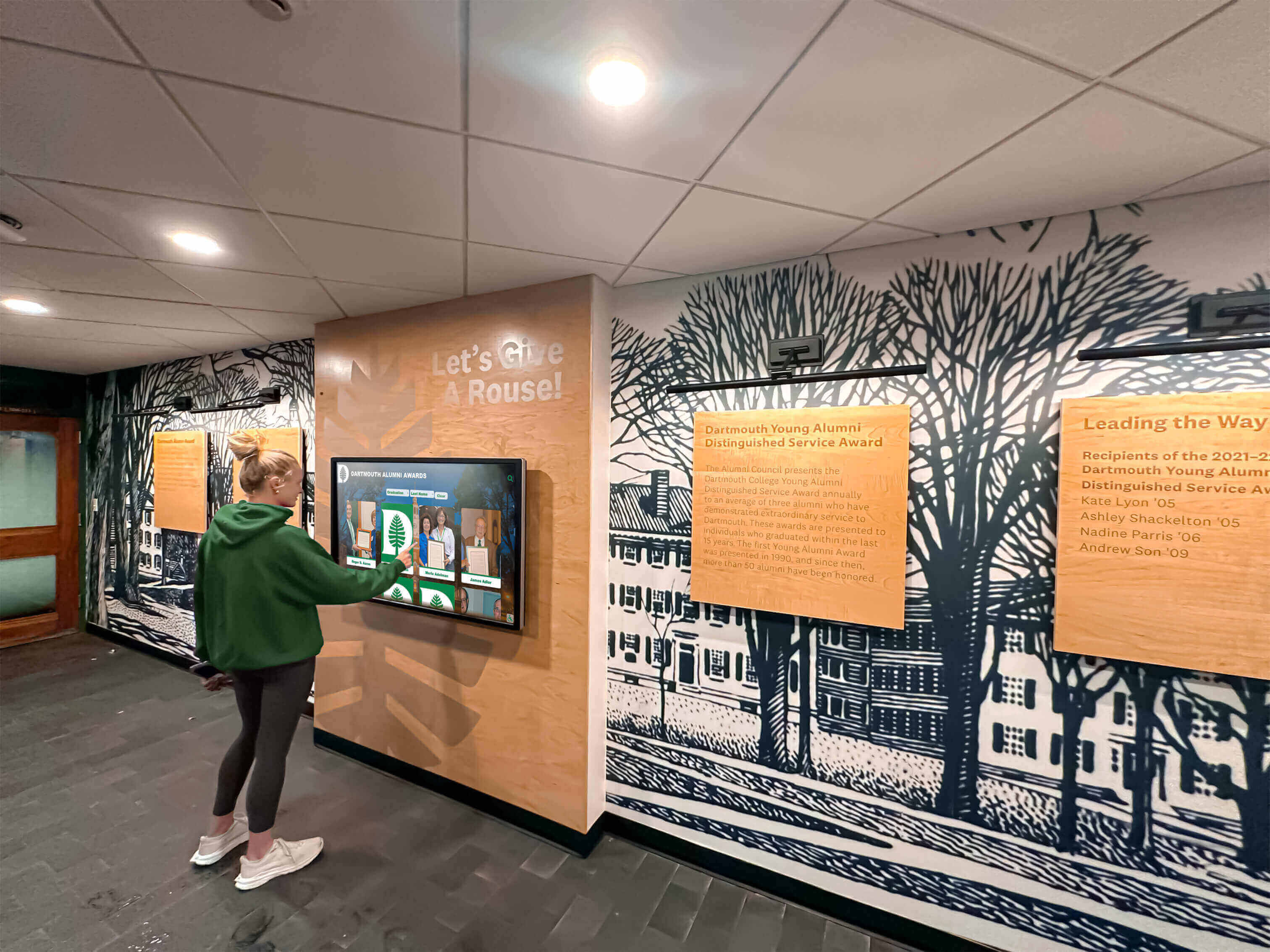
Interactive platforms make tournament history accessible to prospective participants discovering engagement opportunities
Leveraging Recognition Displays for Tournament Success
Strategic use of recognition technology enhances multiple aspects of tournament planning, execution, and ongoing engagement.
Pre-Tournament Promotion and Recruitment
Digital recognition displays support tournament marketing in compelling ways:
Historical Context That Inspires Participation When alumni visit campus or explore online recognition platforms, tournament history provides natural promotion:
- Past tournament galleries showcasing enjoyable experiences and community atmosphere
- Winner recognition demonstrating competitive excitement and achievement opportunities
- Long-term participant spotlights honoring loyal attendees
- Sponsor visibility showing community business support and partnership opportunities
- Growth trajectories demonstrating event popularity and expanding participation
This historical visibility answers prospective participants’ fundamental questions—“What is this event like? Who attends? Will I enjoy participating?"—through authentic documentation rather than abstract marketing claims.
Searchable Databases Facilitating Recruitment Alumni network platforms enable targeted outreach to specific constituencies:
- Identify past participants for direct renewal invitations
- Discover alumni in specific geographic regions for targeted promotion
- Find graduates working in industries aligned with sponsorship opportunities
- Locate classmates and teammates for group recruitment efforts
- Build targeted email lists based on engagement history and interests
Day-of-Event Recognition and Engagement
Physical displays at tournament venues enhance participant experience and sponsor value:
On-Course Recognition Stations Touchscreen displays positioned at registration, dining areas, or awards locations:
- Live leaderboard updates showing current standings throughout tournament
- Historical tournament information entertaining participants between activities
- Sponsor recognition visible to all attendees throughout event day
- Alumni achievement profiles showcasing distinguished graduates who attend
- Interactive exploration creating conversation starters and social lubrication
Sponsor Visibility Maximization Digital recognition addresses common sponsor frustration with traditional hole signs:
- Prominent placement in high-traffic registration and social areas
- Multimedia presentations showcasing sponsor businesses beyond simple logos
- Cumulative recognition highlighting years of continued support
- Photography and social sharing amplifying sponsor visibility beyond event day
- Year-round visibility rather than single-day tournament exposure
Real-Time Content Capture Modern platforms enable immediate documentation:
- Tournament photography uploaded and accessible immediately
- Winner announcements and contest results published in real-time
- Participant comments and testimonials captured digitally
- Social media integration encouraging sharing and engagement
- Permanent archiving ensuring memories never disappear
Post-Tournament Engagement and Appreciation
Recognition platforms extend tournament value well beyond event conclusion:
Participant Appreciation and Recognition Post-event communications leverage documented history:
- Personalized thank you messages referencing individual participation and achievements
- Winner recognition published prominently with photographs and context
- Participant galleries allowing attendees to find themselves and teammates
- Social sharing capabilities enabling personal amplification
- Permanent recognition honoring attendance as part of institutional legacy
Sponsor Recognition and Stewardship Comprehensive visibility demonstrates appreciation and value:
- Year-round sponsor recognition on campus and online platforms
- Detailed impact reports showing reach and visibility achieved
- Cumulative support tracking highlighting long-term partnerships
- Public acknowledgment during other events and communications
- Stewardship content strengthening relationships for continued support
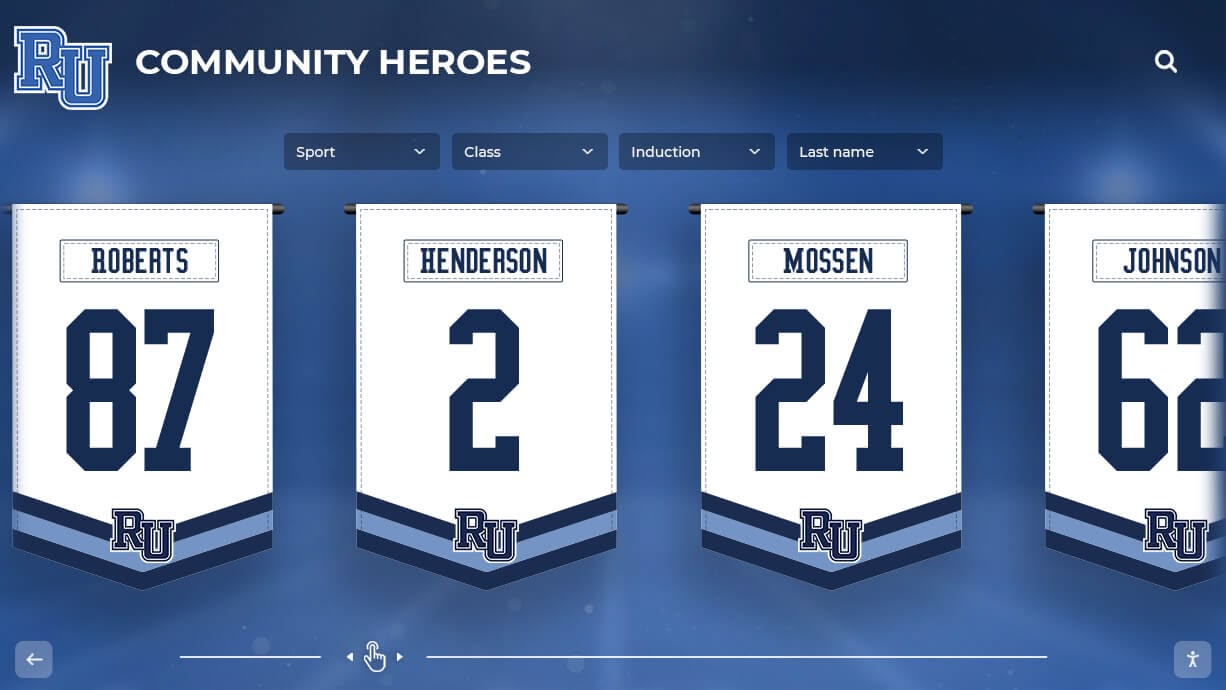
Flexible recognition formats honor sponsors and supporters through multiple visibility approaches
Momentum Building for Future Tournaments Documented success creates foundation for continued growth:
- Historical participation trends demonstrating event popularity
- Testimonials and photographs providing authentic promotional content
- Winner recognition inspiring competitive engagement for next iteration
- Growing historical archive increasing emotional investment in tradition
- Systematic improvement enabled by documented lessons learned
Comprehensive Tournament Information Management
Beyond general history, specific operational information requires systematic organization ensuring smooth execution year after year.
Essential Information to Preserve and Manage
Participant Information Tracking
- Complete registration data including contact information and demographics
- Playing history showing years attended and foursomes played with
- Skill level and handicap information for future pairing considerations
- Dietary restrictions, accessibility needs, and special accommodations
- Preferences for future communications and engagement opportunities
Sponsor and Partnership Records
- Detailed sponsorship history showing levels and years of support
- Decision-maker contacts and relationship history at sponsor organizations
- Sponsorship package details and recognition provided each year
- Evaluation feedback about sponsor satisfaction and value received
- Renewal timing and cultivation strategies for continued support
Vendor and Logistics Documentation
- Golf course contracts and relationships including key contacts
- Catering and beverage vendors with menus, pricing, and performance notes
- Equipment rental companies for tents, audio-visual, and other needs
- Photographer and videographer contacts and deliverable examples
- Insurance providers and policy details ensuring adequate coverage
Operational Templates and Resources
- Planning timelines and checklists refined through years of experience
- Budget templates incorporating historical cost data for accurate projection
- Registration forms and participant communication templates
- Volunteer role descriptions and training materials
- Run-of-show documents coordinating all event day activities
Digital Platforms as Operational Hubs
Rather than recreating organizational infrastructure annually, permanent platforms provide consistent operational foundations:
Centralized Planning Workspaces Committee members access shared resources regardless of staff transitions:
- Document libraries housing all templates, contracts, and reference materials
- Task management systems assigning and tracking committee responsibilities
- Collaborative tools enabling real-time updates and coordination
- Historical notes capturing lessons learned and recommended improvements
- Vendor databases with complete relationship and performance history
Registration and Participation Management Integrated systems streamline participant experience and data collection:
- Online registration forms feeding directly into participant databases
- Automated confirmation communications and pre-event reminders
- Payment processing integrated with financial tracking
- Real-time registration monitoring showing participation trends
- Historical data enabling targeted recruitment based on past attendance
Sponsor Recognition Coordination Systematic approaches ensure sponsors receive promised visibility:
- Sponsorship level tracking linked to recognition placements
- Logo and messaging collection integrated into display content
- Proof-of-recognition documentation for stewardship
- Impact metrics showing reach and engagement achieved
- Renewal tracking and cultivation timeline management
Event Day Logistics and Information Sharing
Even with excellent planning, tournament day success depends on effective communication and information accessibility.
Critical Information for Participant Experience
Pre-Event Communications Comprehensive participant information reduces confusion and enhances experience:
- Detailed schedule showing registration, tee times, meals, and awards timing
- Driving directions and parking instructions for golf course location
- What-to-expect guidance about format, contests, and activities
- Dress code information and recommendations for variable weather
- Hotel accommodations for traveling alumni attending tournament
Many institutions create dedicated tournament web pages or event management platforms consolidating all participant information in easily accessible locations. These pages typically include schedule details, sponsor recognition, historical context, and registration links organized for intuitive navigation.
Day-of-Event Information Access Strategic information placement reduces repetitive questions:
- Registration area displays showing tee time assignments and foursomes
- Course maps indicating hole locations, contest holes, and refreshment stations
- Sponsor recognition visible in registration, dining, and social areas
- Historical tournament information entertaining early arrivals
- Contact information for tournament chairs addressing questions or issues
Sponsor Recognition Best Practices
Maximizing sponsor value requires strategic visibility throughout tournament:
Traditional Hole Signage Physical signs at each hole remain standard recognition approach:
- Professional quality signs reflecting positively on both sponsor and institution
- Clear visibility from tee boxes where golfers congregate
- Weather-resistant materials withstanding outdoor conditions
- Standardized design maintaining visual consistency across course
- Multi-year durability for sponsors providing continued support
Enhanced Digital Recognition Complementing physical signage with technology multiplies visibility:
- Large displays at registration showing all sponsor logos and information
- Rotating presentations during pre-round breakfast and post-round dinner
- Social media recognition amplifying reach beyond tournament attendees
- Website features providing permanent year-round visibility
- Integration with institutional recognition platforms like Rocket Alumni Solutions enabling comprehensive sponsor showcase
Multimedia Sponsor Profiles Moving beyond simple logo placement creates deeper engagement:
- Brief company descriptions explaining sponsor businesses and services
- Contact information enabling networking between attendees and sponsors
- Multi-year recognition honoring cumulative support over time
- Sponsor representative acknowledgment when owners or executives attend
- Impact messaging connecting sponsor support to specific institutional outcomes
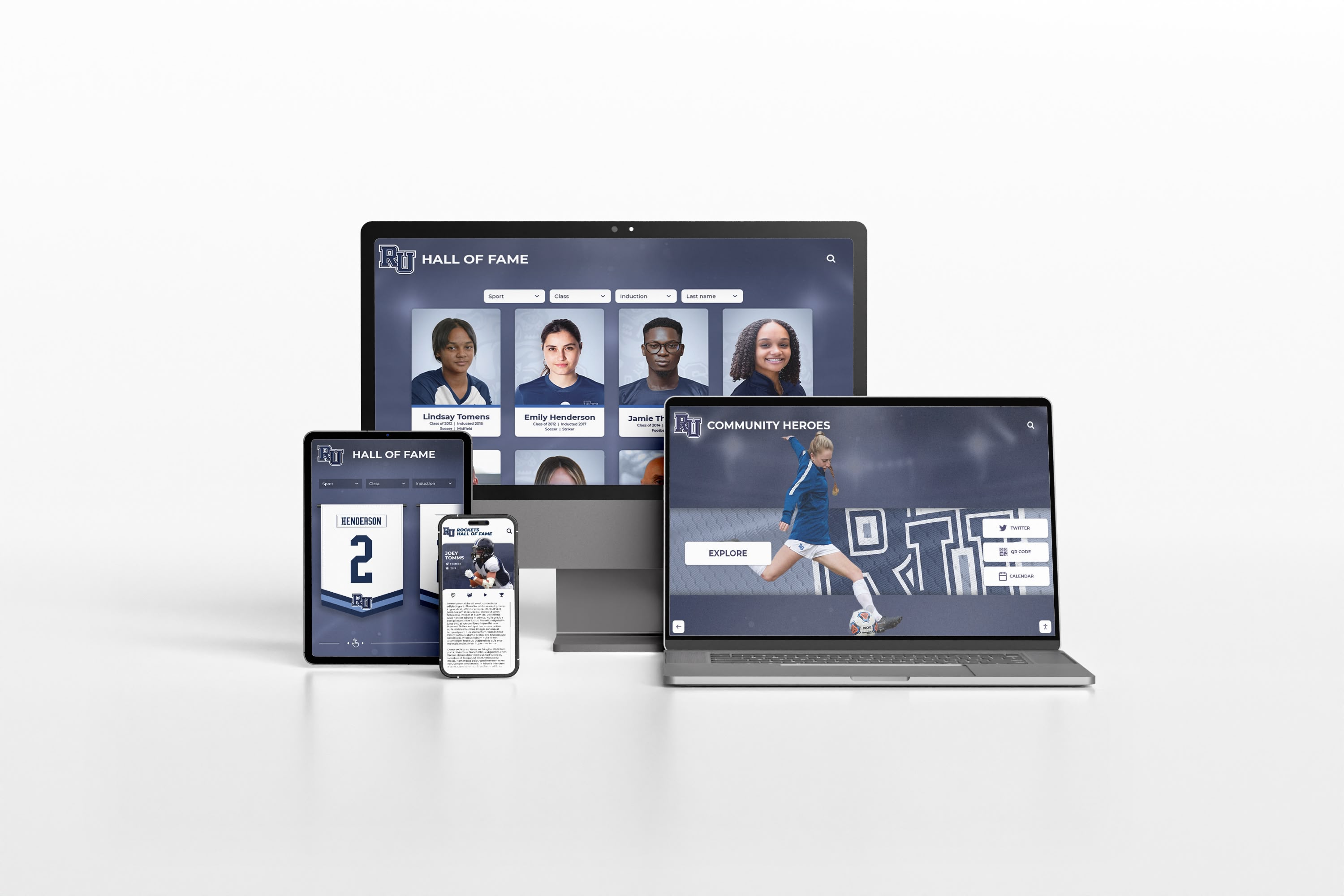
Cross-device accessibility ensures tournament information and sponsor recognition reach participants across all platforms
Building Year-Round Engagement Through Tournament Programs
The most successful alumni golf tournaments don’t exist as isolated annual events—they anchor year-round engagement strategies that strengthen alumni relationships continuously.
Pre-Tournament Engagement Opportunities
Save-the-Date Communications (6-8 Months Out) Early notification helps alumni plan calendars and builds anticipation:
- Email announcements to all alumni with tournament history and information
- Social media campaigns showcasing past tournament highlights and memories
- Personal outreach to past participants encouraging early registration
- Early registration incentives rewarding advance commitment
- Sponsorship recruitment beginning with relationship cultivation
Registration Period Engagement (3-5 Months Out) Active promotion drives participation and sponsorship:
- Weekly registration updates showing participant progress toward capacity
- Feature stories spotlighting distinguished alumni planning to attend
- Historical content series highlighting tournament traditions and evolution
- Corporate sponsor recognition acknowledging early commitments
- Team formation facilitation helping individual registrants find foursomes
Pre-Event Excitement Building (1-2 Months Out) Final push creates momentum heading into tournament:
- Participant spotlights featuring interesting attendees and their stories
- Historical achievement reviews recognizing past winners and milestones
- Sponsor appreciation showcasing business partners supporting event
- Detailed logistics information preparing participants for smooth experience
- Contest announcements creating competitive excitement
Post-Tournament Stewardship and Relationship Building
Immediate Post-Event Communications (Within 1 Week) Strike while experience remains fresh in participants’ memories:
- Thank you messages to all participants acknowledging attendance and support
- Winner and contest result announcements with photographs and recognition
- Sponsor appreciation publicly acknowledging business partner support
- Participant surveys gathering feedback for continuous improvement
- Photo galleries allowing attendees to find themselves and relive experiences
Sustained Engagement (Months Following Tournament) Extend tournament value throughout the year:
- Periodic “throwback” content on social media revisiting tournament highlights
- Winner features in alumni publications and newsletters
- Continued sponsor recognition through multiple channels year-round
- Historical comparisons connecting current tournament to institutional tradition
- Early registration invitations for next year’s event maintaining momentum
Integration With Broader Alumni Engagement Strategies
Golf tournaments work most effectively when integrated with comprehensive approaches:
Recognition Platform Connection Tournament participation connects to broader alumni recognition systems:
- Attendance records preserved as part of alumni engagement history
- Winner recognition integrated with other achievement acknowledgment
- Long-term participant honoring through milestone recognition
- Sponsor recognition connected to broader donor and partner appreciation
- Searchable databases enabling alumni to discover fellow tournament attendees
Reunion and Event Coordination Strategic scheduling maximizes participation and institutional efficiency:
- Coordination with reunion weekends bringing alumni to campus anyway
- Connection to homecoming creating extended engagement opportunities
- Pairing with other alumni events reducing travel burden
- Family-friendly timing accommodating multiple generations
- Weather-optimized scheduling improving experience and participation
Development and Fundraising Integration Tournament participation provides natural major gift cultivation opportunities:
- Relaxed four-hour playing format enabling relationship development
- Natural conversation opportunities discussing institutional priorities
- Visible demonstration of alumni support inspiring additional giving
- Corporate sponsor relationships creating business partnership pathways
- Participant data informing broader advancement strategy and targeting
Measuring Tournament Success and Continuous Improvement
Systematic evaluation ensures tournaments continuously improve while demonstrating value to institutional stakeholders.
Key Performance Indicators to Track
Participation Metrics
- Total participants compared to capacity and previous years
- First-time participant percentage showing new alumni engagement
- Repeat participation rate demonstrating satisfaction and loyalty
- Participant demographics showing reach across graduation years
- Geographic distribution understanding where participants travel from
Financial Performance
- Gross revenue from all sources totaling tournament income
- Net revenue after expenses available for institutional priorities
- Average revenue per participant calculating per-attendee contribution
- Sponsorship revenue compared to participant fees showing funding diversity
- Year-over-year growth trends demonstrating trajectory
Engagement and Satisfaction
- Post-event survey responses and satisfaction ratings
- Net Promoter Score (likelihood to recommend tournament to others)
- Social media engagement and sharing indicating enthusiasm
- Continued engagement with post-event content and communications
- Registration conversion rates for following year’s tournament
Institutional Impact
- Alumni database growth and enhanced constituent records
- Subsequent giving from tournament participants beyond event itself
- Volunteer recruitment for other institutional opportunities
- Corporate partnership development beyond tournament sponsorship
- Media coverage and visibility generated through tournament execution
Systematic Improvement Process
Post-Event Debrief Immediately following tournament while details remain fresh:
- Planning committee meeting reviewing all aspects of execution
- Detailed notes capturing what worked well and improvement opportunities
- Volunteer feedback about their experiences and suggestions
- Vendor performance evaluation informing future selection
- Documentation of all lessons learned for permanent institutional record
Participant Feedback Analysis Survey data provides invaluable insights:
- Quantitative ratings showing satisfaction levels across tournament elements
- Qualitative comments revealing specific issues and praise
- Competitive format evaluation understanding participant preferences
- Pricing sensitivity assessment informing future fee structures
- Improvement suggestions directly from participant experience
Financial Analysis and Budgeting Detailed financial review informs future planning:
- Actual versus projected budget comparison identifying variance sources
- Per-participant cost analysis calculating efficiency
- Revenue source diversification examining dependency on specific categories
- Pricing strategy evaluation assessing participant willingness to pay
- Investment return calculation demonstrating institutional value
Strategic Planning for Future Years Translation of assessment into action:
- Priority improvements implemented for next tournament iteration
- Successful elements preserved and enhanced for continued quality
- Growth strategies balancing increased participation with experience quality
- Sponsorship expansion identifying new partnership opportunities
- Technology enhancements leveraging digital platforms for better outcomes
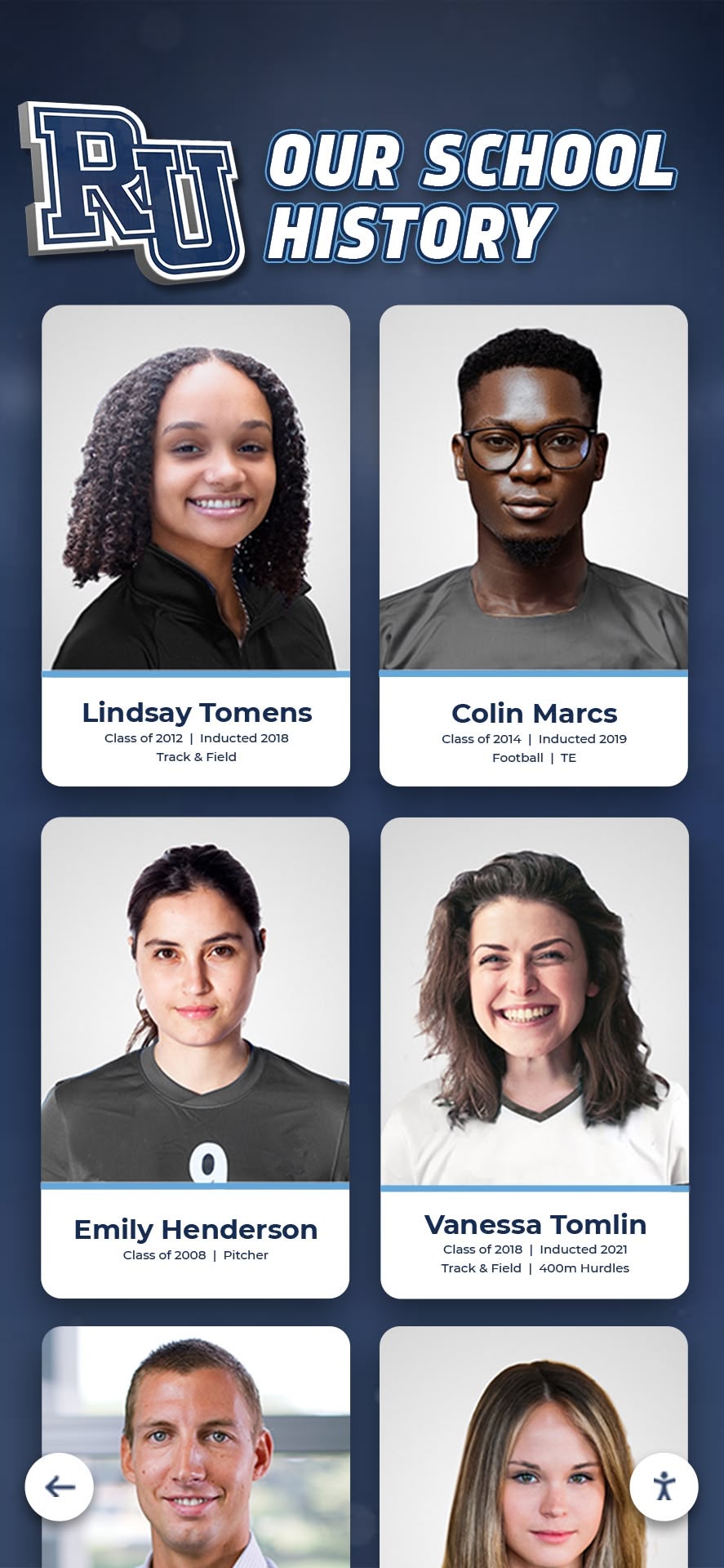
Systematic documentation of tournament participants creates historical records inspiring continued tradition
Technology Infrastructure for Tournament Excellence
Selecting appropriate technological solutions significantly impacts tournament management efficiency and participant experience quality.
Essential Technology Requirements
Registration and Payment Processing Streamlined systems reduce administrative burden:
- Online registration forms collecting all necessary participant information
- Secure payment processing accepting credit cards and electronic payments
- Automatic confirmation emails reducing manual communication needs
- Real-time registration tracking showing current participation status
- Integration with broader alumni databases for data continuity
Communication and Marketing Platforms Effective outreach maximizes participation:
- Email marketing systems enabling segmented, targeted communications
- Social media management tools coordinating cross-platform promotion
- Web content management for dedicated tournament information pages
- Mobile optimization ensuring accessibility across all devices
- Analytics tracking showing campaign effectiveness and reach
Recognition and Historical Preservation Comprehensive platforms like Rocket Alumni Solutions address multiple needs:
- Participant databases tracking attendance across all tournament years
- Winner and achievement records preserved permanently with photographs
- Sponsor recognition providing year-round visibility beyond event day
- Searchable archives enabling alumni to explore tournament history
- Multimedia galleries showcasing event experiences and memories
Rocket Alumni Solutions for Tournament Management
Solutions like Rocket Alumni Solutions provide purpose-built platforms specifically addressing annual event challenges:
Comprehensive Historical Archives Digital recognition systems preserve complete tournament legacy:
- Unlimited capacity for participant records without space constraints
- Rich multimedia profiles including photographs, achievements, and stories
- Advanced search functionality enabling discovery by year, name, or category
- Statistical summaries showing participation trends over time
- Integration with broader institutional recognition celebrating all alumni achievement
Event Information Management Centralized platforms streamline operational coordination:
- Event detail pages consolidating schedules, logistics, and participant information
- Sponsor recognition displays visible to all campus visitors year-round
- Resource libraries housing operational documents and templates
- Committee coordination tools facilitating planning across multiple stakeholders
- Mobile accessibility ensuring information reaches participants across devices
Engagement and Visibility Strategic platforms amplify tournament reach and impact:
- Campus touchscreen displays showcasing tournament history to visitors
- Web-based access enabling global alumni to explore participation opportunities
- Social sharing capabilities encouraging personal amplification
- Interactive exploration creating emotional investment in institutional traditions
- Analytics demonstrating engagement and informing strategic decisions
Special Considerations and Creative Enhancements
Innovative approaches differentiate exceptional tournaments from merely functional events.
Creative Format Variations
Multi-Day Tournament Experiences Extended events create deeper engagement:
- Friday evening welcome reception and course practice round
- Saturday tournament with post-round dinner and awards
- Sunday farewell brunch or campus tour before departures
- Spouse and family programming for non-golfing attendees
- Expanded fundraising opportunities through extended activities
Themed Tournaments Distinctive themes create memorable experiences:
- Decades themes with era-appropriate music, attire, and decorations
- School color celebrations with coordinated team uniforms
- Hall of fame honoring with featured distinguished alumni
- Rivalry tournaments pairing with traditional institutional opponents
- Championship commemorations celebrating milestone athletic achievements
Skill-Diverse Accommodations Inclusive approaches broaden participation:
- Nine-hole options for casual players or time-constrained participants
- Beginner clinics preceding tournament for less experienced golfers
- Mixed formats combining competitive divisions with social play
- Alternate activities for non-golfing spouses and family members
- Volunteer opportunities enabling participation without playing
Enhanced Fundraising Approaches
Premium Sponsorship Experiences High-value packages provide exclusive benefits:
- VIP foursomes with institutional leaders or distinguished alumni
- Exclusive reception access and preferred positioning
- Multi-year commitments with cumulative recognition benefits
- Corporate team-building opportunities combining golf with networking
- Facility naming or permanent recognition for major commitments
Supplemental Revenue Opportunities Additional income sources beyond registration and sponsorship:
- Live and silent auctions featuring attractive items and experiences
- Raffle ticket sales for significant prizes
- Mulligans and shot-saving game enhancements
- Proximity contests with entry fees and attractive prizes
- Post-tournament social events with additional ticket sales
Crowdfunding and Peer-to-Peer Fundraising Modern approaches expand beyond traditional participant-only giving:
- Individual fundraising pages for participants soliciting support
- Social media campaigns reaching extended networks
- Matching gift challenges creating excitement and urgency
- Team fundraising competitions adding collaborative elements
- Digital recognition honoring top fundraisers publicly
Conclusion: Building Lasting Legacy Through Annual Traditions
Annual alumni golf events represent far more than single-day fundraisers—they embody institutional traditions that strengthen alumni bonds, celebrate community connections, preserve institutional memory, and create shared experiences spanning generations. The most successful tournaments share essential characteristics: meticulous planning building on historical knowledge rather than reinventing annually, comprehensive information management preserving institutional memory across staff transitions, strategic recognition honoring participants, winners, and sponsors year-round, seamless integration with broader alumni engagement strategies, and commitment to continuous improvement informed by systematic evaluation.
Schools implementing the strategies explored in this guide create golf tournaments that genuinely serve their communities through authentic celebration, meaningful fundraising, and lasting relationship building. Whether launching inaugural tournaments or enhancing established traditions, whether serving small colleges with intimate gatherings or large universities with elaborate productions, the opportunity exists to create experiences that participants treasure, support that funds institutional priorities, and traditions that endure across decades.
Ready to enhance your alumni golf tournament management? Modern recognition solutions help schools preserve tournament history comprehensively, manage event information efficiently, and strengthen participant engagement throughout the year. Solutions like Rocket Alumni Solutions provide digital platforms that eliminate information loss through staff transitions, showcase tournament history to prospective participants year-round, honor sponsors with permanent visibility beyond single event days, and integrate tournament recognition with broader alumni achievement celebration.
Explore digital recognition approaches that preserve institutional traditions, or learn about comprehensive alumni engagement strategies that maximize tournament impact.
The strategic value of golf tournaments extends well beyond single-day revenue—these events create touchpoints for relationship building, demonstrate visible alumni support inspiring current students, provide networking benefits valuable to participant careers, celebrate institutional traditions connecting past to present, and generate stories and memories that become part of institutional folklore. When recognition honors every participant’s contribution through systematic documentation and permanent preservation, tournaments transform from annual obligations into cherished traditions that strengthen institutional community across generations.
Your alumni deserve golf tournaments that honor their participation meaningfully, preserve their memories permanently, manage logistics efficiently, and create the enjoyable experiences that inspire continued engagement year after year. With thoughtful planning, appropriate technology, comprehensive recognition, and commitment to continuous improvement, you can create tournaments that become cherished highlights of alumni calendars—traditions that participants prioritize annually because experiences genuinely matter and connections truly endure.
Start where you are with improvements you can implement for your next tournament, then systematically build toward comprehensive approaches your alumni community deserves. The most important element isn’t budget size, participant number, or tradition length—it’s genuine commitment to creating experiences that honor every participant while preserving institutional memory through systems that ensure knowledge never disappears and recognition never fades.




































